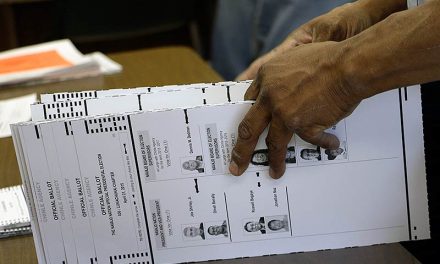
Region Briefs | BLM begins steps to protect Chaco Canyon
WASHINGTON
The U.S. Bureau of Land Management on Tuesday announced its proposal to withdraw approximately 351,000 acres of public lands within a 10-mile radius around Chaco Canyon National Historical Park.
This action, published Tuesday in the Federal Register, follows President Biden’s announcement on Nov. 15 of the department’s new efforts to protect Chaco Canyon.
The action is also to ensure that public land management better reflects the sacred sites, stories, and cultural resources in the region.
The proposed withdrawal would bar new federal oil and gas leasing on those lands. The two-year segregation and potential withdrawal would not affect existing valid leases or rights and would not apply to minerals owned by private, state or tribal entities.
In additional to Tuesday’s proposed withdrawal, the BLM is initiating a 90-day public comment period and will be hosting several public meetings as well as begining formal tribal consultation.
The public may submit comments on the proposed withdrawal until April 6, 2022. Comments may be submitted through ePlanning at: https://eplanning.blm.gov/eplanning-ui/project/2016892/510 or to Bureau of Land Management, Farmington Field Office, Attn: Sarah Scott, 6251 College Blvd., Suite A, Farmington, NM 87402.
In addition to the 90-day public comment period, BLM invites the public to register and participate in one of the upcoming public meetings: Feb. 23 from 3 p.m. to 4:30 p.m. at San Juan College; Feb. 23 from 6 p.m. to 7:30 p.m.; and a Zoom webinar on Feb. 24 from 6 p.m. to 7:30 p.m.
Information: Sarah Scott, 505-564-7689 or sscott@blm.gov
NM PED fails to release plan for Indigenous students
SANTA FE (AP) – New Mexico’s plan to address the needs of underserved Indigenous students hasn’t been shared with tribal leaders or the public despite promises made by state officials that they would do so last year.
Tribal leaders were expecting to be invited to comment on a draft last October, ahead of a public release of the plan by Dec. 1 that did not happen.
“When it comes to promises, and it is a serious thing, it should have been followed up already,” said Mark Mitchell, recently named chairman of the All Pueblo Council of Governors, which represents 20 Pueblos in New Mexico and Texas.
The New Mexico Public Education Department, known as PED, had hired former Santa Fe Public Schools Superintendent Veronica García to write the plan.
García said she submitted a draft in early October and understood at the time that state education officials would refine and format it. But she never heard back from them.
“I don’t know what happened after that. That would be, I think, a good question for PED or the governor’s office,” she said.
The education department declined to comment Tuesday on why it failed to meet its self-imposed goal to release a draft for public comment by Dec. 31.
Public invited to share Albuquerque Indian School stories
ALBUQUERQUE – The city of Albuquerque will hold four community conversations with people who have a connection with the old Albuquerque Indian School, as part of an effort to gather a more complete history to inform the future of the burial site at 4-H Park.
The city invites the public to share stories about family members, neighbors, teachers, staff and loved ones who were part of the Albuquerque Indian School.
Since June 2021, the city has sought input and guidance from Pueblos, tribes and community stakeholders on how to treat the burial site as a sacred space within a city park, following the disappearance of a plaque that marked the spot where students are thought to be buried.
“As we move through the process of discovering stories about the Indian School and what took place there, we must take the time to ask our ancestors for strength and healing for those who didn’t return home,” said Terry Sloan, intergovernmental tribal liaison for the city. “The most sensitive areas of the park have been demarcated and closed to public access and we ask the community to be respectful of that space as it is a sacred site.”
The community conversations are scheduled Jan. 14 from 4:30 p.m. to 6:30 p.m. at Los Duranes Community Center and virtually on Jan.12, 13 and 14.
Information: City of Albuquerque’s Office of Equity and Inclusion at oei@cabq.gov.
Sentencing set for US airman convicted in teacher’s killing
FLAGSTAFF (AP) — A U.S. Air Force airman who was convicted of killing a Mennonite woman after kidnapping her in New Mexico and taking her to Arizona will be sentenced next month.
During a status hearing on Tuesday, an Arizona judge scheduled Mark Gooch’s sentencing for Jan. 19. His attorney and the prosecution agreed they were ready to proceed and asked the judge to schedule the sentencing as soon as possible.
Gooch, 22, faces up to life in prison.
Jurors in October found Gooch guilty of kidnapping and first-degree murder in Sasha Krause’s killing. The two didn’t know each other and lived hundreds of miles apart but shared an upbringing in the Mennonite religion. Krause committed to the church, while Gooch did not.
Krause, 27, was last seen in January 2020 at the church in her tight-knit Mennonite community outside Farmington, where she was gathering material for Sunday school.
More than a month later, her body was found in a forest clearing outside Flagstaff, nearly 300 miles (480 kilometers) away. A camper collecting firewood spotted Krause face-down among pine needles near a national monument. Krause’s wrists were bound, and she had been shot in the head.
During the trial last fall, jurors heard 10 days of testimony from those who knew Krause and investigated her disappearance. They heard from ballistics experts who disagreed on whether the bullet taken from her skull was fired from a .22-caliber rifle Gooch owned.
Gooch’s attorney, Bruce Griffen, tried to raise doubt by pointing to a lack of forensic evidence and to testimony about another car seen in the Mennonite community the day Krause went missing.
He said Gooch was peaceful and volunteered information to a detective who interviewed him at Luke Air Force Base in metropolitan Phoenix, where he was stationed.
Authorities used cellphone and financial records and surveillance video to tie Gooch to the crimes.
Phoenix Indian Center celebrates 75th anniversary
PHOENIX – The Phoenix Indian Center will celebrate its 75th anniversary in 2022 with a new logo and community events focused on culture throughout the year.
Jolyana Begay-Kroupa, interim CEO of the Phoenix Indian Center, said, “It is a monumental occasion for our nonprofit, for our staff, but, most importantly, for our American Indian community here in Phoenix.”
Scheduled events include cultural song and dance nights and family-focused gatherings.
The new logo design uses the image of a Phoenix with its wings encircling city buildings and a new border inspired from Omaha tribal art, which is a nod to Leon Grant, an Omaha tribal member.
The center was founded in 1947 during the Indian Relocation era and was meant to serve as a welcoming gathering spot for American Indians moving to Phoenix.
Visual designer Phylander Kirk, Navajo, developed the new logo and it will be used in branding materials throughout 2022.
The Phoenix Indian Center serves more than 7,000 people annually through direct services and touches the lives of more than 20,000 people through related outreach.
Information: www.phxindcenter.org
Blue lights on dome mark Human Trafficking Prevention Month
PHOENIX – Arizona will recognize Human Trafficking Prevention Month by lighting the State Capitol Dome blue every evening through Jan. 31.
The state has worked to bring greater attention to combat human trafficking, protect victims’ rights and hold perpetrators accountable.
For many years, the Arizona Human Trafficking Council has led targeted statewide human trafficking prevention and awareness efforts.
Maria Cristina Fuentes, director of the Arizona Governor’s Office of Youth, Faith and Family, serves as chair of the council, following the retirement of co-chair Gil Orrantia, former Arizona Department of Homeland Security director, and the resignation of co-chair Cindy McCain.
“Human trafficking is a devastating crime that requires a multidisciplinary approach,” said Fuentes.
“Arizona is committed to zero-tolerance for human trafficking and we’ve made many strides in the fight against human exploitation,” said Governor Doug Ducey.
McCain resigned as co-chair in December following her confirmation as U.S. ambassador to the United Nations Agencies for Food and Agriculture.








 Highway 264,
Highway 264, I-40, WB @ Winslow
I-40, WB @ Winslow